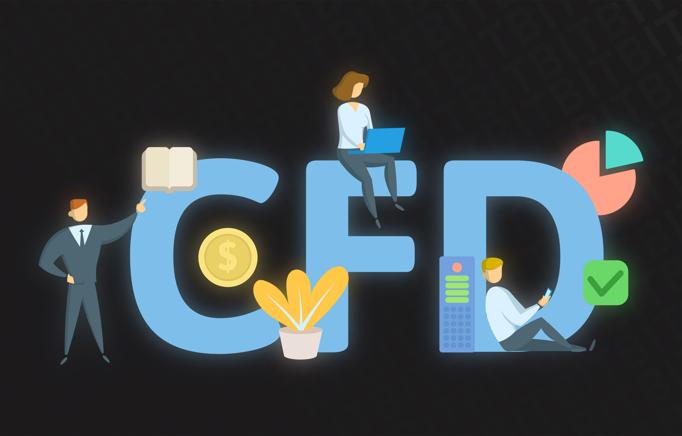What is CFD
Crypto for Beginners
Other articles
A contract for differences (CFD) is a financial derivative trading arrangement in which the difference in the settlement between the open and closing transaction prices are settled in cash. CFDs do not include the delivery of tangible items or securities. Contracts for differences are a sophisticated trading practice utilized by experienced traders that is not permitted in the United States.
CFDs enable traders to speculate on the price movements of equities and derivatives. Financial investments formed from an underlying asset are known as derivatives. CFDs are essentially utilized by investors to place price wagers on whether the underlying asset or security's price will rise or decline. CFD traders can speculate on the price moving up or down. Traders who anticipate an upward price movement will purchase the CFD, while those who anticipate a negative price movement will sell an opening position. If the price of the asset rises, the buyer of a CFD will offer their position for sale. The net difference between the buy and selling prices is added together.
The investor's brokerage account settles the net difference, which represents the gain or loss from the trades. If a trader feels the price of a securities will fall, he or she might establish a sell position. They must buy an offsetting transaction to close the position. Again, the net difference between the gain and loss is settled in cash through their account.
Many assets and securities, including exchange-traded funds, can be exchanged using contracts for differences. These products will also be used by traders to bet on price movements in cryptocurrency markets. Futures contracts are standardized agreements or contracts that require the buyer or seller to acquire or sell a certain asset at a predetermined price with a future expiration date. Although CFDs allow investors to trade futures price fluctuations, they are not futures contracts themselves. CFDs do not have fixed expiry dates and prices, but instead trade like conventional securities with buy and sell prices.
CFDs are traded over-the-counter (OTC) via a network of brokers that manage market demand and supply for CFDs and set pricing appropriately. CFDs, in other words, are not traded on major exchanges like the New York Stock Exchange (NYSE). The CFD is a tradable contract between a client and a broker in which the difference between the original price of the transaction and its value when the deal is unwound or reversed is exchanged.
CFDs provide traders all of the benefits and dangers of owning a security without having to actually own it or take physical possession of the asset. CFDs are traded on margin, which means that the broker allows investors to borrow money to raise leverage or the size of the position in order to enhance profits. Before allowing this sort of transaction, brokers will need traders to maintain particular account balances.
Margin trading CFDs are often more leveraged than regular trading. Standard leverage in the CFD market can range from a 2% margin requirement to a 20% margin requirement. Lower margin requirements imply a lower outlay of cash and higher potential rewards for the trader.


